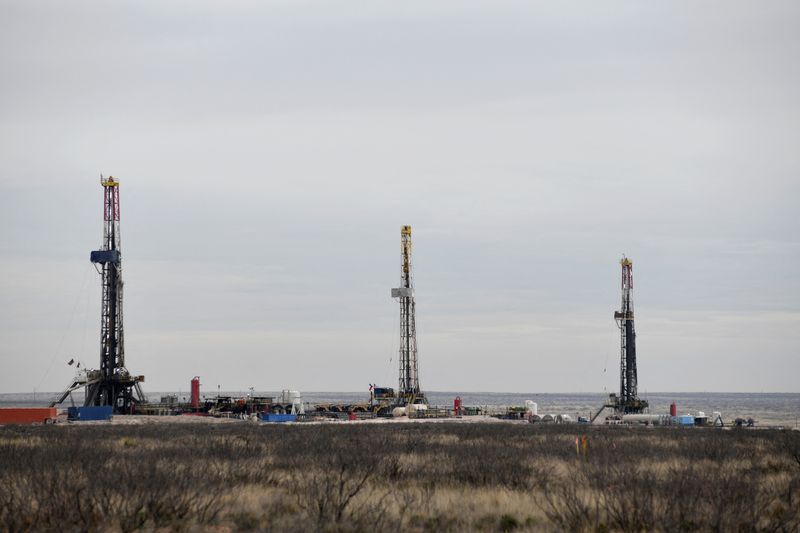HOUSTON (Reuters) - U.S. oil mergers slowed sharply last quarter after a year-long consolidation wave emptied pocketbooks and left fewer companies on offer in the top U.S. shale field, analytics firm Enverus said on Wednesday.
There were $12 billion worth of deals disclosed in the quarter ended Sept. 30, the lowest total in six quarters, said Enverus Intelligence Research principal analyst Andrew Dittmar.
"Upstream M&A was bound to drop" after 2023's record $192 billion in deals largely in the Permian basin of West Texas and New Mexico, the largest U.S. shale field. Those mega deals have acquirers busy running portfolio reviews to weed out unwanted assets, he added.
Some of the biggest buyers have become sellers as they prune holdings, he said, citing Occidental Petroleum (NYSE:OXY)'s $818 million sale of properties to Permian Resources and APA Corp divesting older properties to an undisclosed buyer.
The two biggest deals in the quarter were outside the Permian basin in secondary shale fields, with Devon Energy (NYSE:DVN) adding to its North Dakota holdings with a $5 billion deal for Grayson Mill Energy assets.
The second largest deal, Quantum (NASDAQ:QMCO) Capital Group's $1.8 billion deal for Caerus Oil & Gas properties, was for properties in northwestern Colorado and Utah.
"There is still a significant amount of oil and gas to develop outside the main shale plays," said Enverus' Dittmar. "We're going to see more interest in these types of assets from private companies and small public companies."

The third quarter's deal value was the smallest quarterly total this year, and less than half the second quarter's $30 billion in oil and gas deals.
Some of the announced combinations have been delayed, either by antitrust regulator the Federal Trade Commission or a contract arbitration challenge.